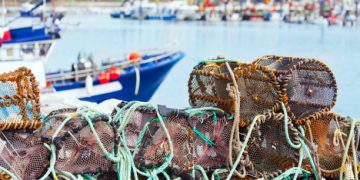The Irish crab market has faced a significant downturn, raising concerns among crab fishers about the sustainability of their businesses, according to a recent report by RTÉ. A notable decrease in demand for Irish brown crab in major markets such as France, Spain, and Portugal has resulted in a 40% drop in income for Irish crab fishers. Some fishers are struggling to sell their catch, as Irish buyers who export crab are hesitant to purchase due to the risk of holding unsold stock. The decline in European demand is attributed to rising living costs and increased transportation expenses for fresh produce. Irish crab exports, which are typically valued at up to €50 million annually, have seen a substantial reduction in recent weeks.
Following a slowdown in the Chinese market, France experienced a complete collapse, with Spain’s market rapidly diminishing and demand in Portugal drying up. The situation is further exacerbated by the declining price of lobster and a ban on pollack fishing. Lobster prices have dropped from €30 per kg to €15 per kg within a month. Fisherman Ciarán Ó Lúing explained to RTÉ that their options have become severely limited. “In the past, if crab prices fell we could rely on pollack. Now that is gone as well,” said Ó Lúing. “Lobster is struggling, and all that is left is crayfish, but if everyone turns to crayfish at once, the price will crash there too.”
Fisherman Eoin Feirtéar described this season as particularly challenging, especially after investing in a new 12-meter boat. “We are down 40-45% on what we would normally earn. We are only going out once or twice a week now because there is no point. The buyers will not take crab from us.” Michael Desmond, chairman of the National Inshore Fisherman’s Association, emphasized the need for support measures to assist fishers. “We saw this coming seven months ago when the processed crab industry in Ireland began to struggle. Factories started closing,” Desmond said. “We need immediate financial support for fishermen and proper crab management policies to ensure a stable market. We’re facing a significant challenge.” The call for financial support and better management policies highlights the urgency to stabilize the market and support the fishing industry during this difficult period.
#FishingIndustry #SeafoodSupplyChainNews #MarketDemand #SupplyChainChallengesNews #MarineEconomyNews
















